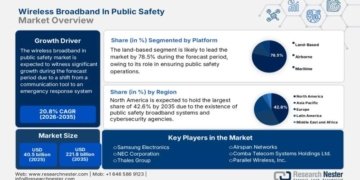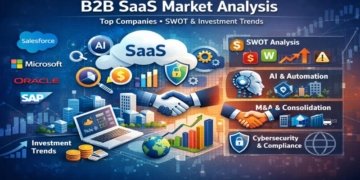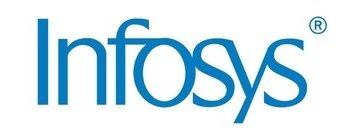Streamlining the Future of Industrial Efficiency and Growth
The Manufacturing Operations Management (MOM) Software Market is projected to grow significantly, from an estimated US$15.9 billion in 2024 to US$38.3 billion by 2031, with a robust CAGR of 12.6% during the forecast period. This growth is fueled by the increasing demand for automation, digitalization, and smart manufacturing to enhance operational visibility and efficiency. The rise of Industry 4.0, the Industrial Internet of Things (IoT), AI, and data analytics are major drivers. Additionally, the shift towards cloud-based solutions and growing regulatory compliance needs are further propelling market expansion.
Request for Sample: https://www.persistencemarketresearch.com/samples/34671
Introduction to Manufacturing Operations Management (MOM) Software
MOM software plays a vital role in integrating and optimizing various processes involved in manufacturing. From managing production schedules to inventory control, resource allocation, and compliance, MOM solutions offer a comprehensive platform for manufacturers to enhance their operational efficiency. This software integrates different components such as manufacturing execution systems (MES), quality management, advanced planning, and scheduling, among others, providing real-time visibility and control over the manufacturing floor.
Market Drivers: Automation and Industry 4.0 Leading the Charge
The manufacturing sector is experiencing a paradigm shift, driven by the adoption of automation and Industry 4.0 technologies. As companies seek to remain competitive in a rapidly evolving landscape, they are embracing MOM software to automate processes, reduce operational costs, and improve productivity. The rise of smart factories and digital twins, coupled with advances in artificial intelligence (AI), the Industrial Internet of Things (IIoT), and machine learning (ML), is accelerating the adoption of MOM solutions.
Key technologies such as real-time data analytics and cloud-based solutions are becoming integral to MOM software platforms. These technologies enable manufacturers to gain insights into their operations, allowing for faster decision-making and proactive maintenance, ultimately minimizing downtime and enhancing efficiency.
Growth Opportunities in Emerging Markets
While developed regions like North America and Europe have traditionally been the primary markets for MOM software, emerging markets in Asia-Pacific and Latin America are witnessing significant growth. The industrial sectors in these regions are expanding rapidly, with a focus on modernizing manufacturing processes. Countries such as China, India, and Brazil are investing heavily in infrastructure and manufacturing capabilities, further driving the demand for MOM solutions.
In particular, Asia-Pacific is expected to be the fastest-growing region in the MOM software market, owing to the rising adoption of smart manufacturing practices and favorable government initiatives aimed at boosting digital transformation in industries. The region’s growing automotive, electronics, and consumer goods sectors are major contributors to this upward trend.
Segment Analysis: Which MOM Solutions Are Leading the Market?
MOM software encompasses several modules, each addressing a specific aspect of manufacturing operations. Some of the key solutions driving the growth of the market include:
Manufacturing Execution Systems (MES): MES solutions are central to the MOM ecosystem, providing real-time tracking and control over manufacturing processes. They play a critical role in ensuring compliance with quality standards, optimizing production schedules, and managing resources efficiently.
Advanced Planning and Scheduling (APS): APS software allows manufacturers to optimize production plans, considering variables such as machine availability, labor, and material constraints. This module is particularly useful in complex manufacturing environments where efficiency is paramount.
Quality Management Systems (QMS): As regulatory requirements become more stringent, the demand for QMS solutions within MOM platforms is increasing. These systems help manufacturers ensure that products meet quality standards and regulatory compliance, minimizing the risk of product recalls and improving customer satisfaction.
Inventory and Resource Management: Efficient management of raw materials, work-in-progress, and finished goods is crucial for manufacturers. MOM solutions offer advanced tools for managing inventory, ensuring that materials are available when needed while minimizing excess stock and associated costs.
Challenges Facing the MOM Software Market
Despite the significant growth potential, the MOM software market is not without challenges. One of the primary obstacles is the high cost of implementing and maintaining MOM solutions, which can be a barrier for small and medium-sized enterprises (SMEs). Additionally, the integration of MOM software with existing legacy systems can be complex, requiring substantial customization and training efforts.
Cybersecurity concerns also loom large as manufacturers become more reliant on digital platforms. The increasing connectivity of machines and systems opens up vulnerabilities that could be exploited by cybercriminals, posing a significant risk to manufacturing operations. As a result, companies are investing in robust cybersecurity measures to protect their MOM systems from potential threats.
Competitive Landscape: Key Players and Strategic Developments
The MOM software market is highly competitive, with several key players dominating the industry. Companies such as Siemens AG, SAP SE, ABB Ltd., Dassault Systèmes, Honeywell International Inc., and Rockwell Automation are among the market leaders. These players are continuously investing in research and development to enhance their MOM offerings and provide innovative solutions that meet the evolving needs of manufacturers.
Strategic partnerships, mergers and acquisitions, and collaborations with technology providers are also shaping the competitive landscape. For example, Siemens’ acquisition of Mendix, a leading low-code application development platform, underscores its commitment to enhancing its MOM software capabilities. Similarly, ABB’s collaboration with Microsoft to integrate AI and cloud computing into its manufacturing solutions highlights the importance of leveraging emerging technologies to stay ahead in the market.
Technological Advancements: AI, IIoT, and Cloud Computing
Technological innovations are playing a pivotal role in shaping the future of the MOM software market. Artificial intelligence (AI) and machine learning (ML) are being increasingly integrated into MOM solutions, allowing manufacturers to analyze vast amounts of data in real-time and make more informed decisions. Predictive analytics powered by AI can help manufacturers anticipate equipment failures and maintenance needs, thereby reducing unplanned downtime and improving operational efficiency.
The Industrial Internet of Things (IIoT) is another game-changer, enabling the seamless connection of machines, devices, and systems on the shop floor. IIoT allows for real-time monitoring of production processes and facilitates the collection of critical data, which can be used to optimize operations and enhance overall productivity.
Cloud computing is also gaining traction in the MOM software market, as it offers scalability, flexibility, and cost-effectiveness. Cloud-based MOM solutions enable manufacturers to access data and manage operations remotely, providing greater agility and responsiveness in a rapidly changing market environment.
Sustainability in Manufacturing: The Role of MOM Software
Sustainability has become a top priority for manufacturers worldwide, and MOM software is playing a crucial role in helping companies achieve their sustainability goals. By optimizing resource allocation, reducing waste, and minimizing energy consumption, MOM solutions enable manufacturers to operate more sustainably. Furthermore, MOM software can track and monitor emissions, helping companies comply with environmental regulations and reduce their carbon footprint.
As consumers become more environmentally conscious and governments introduce stricter regulations, sustainability will continue to be a driving force in the adoption of MOM software. Companies that leverage MOM solutions to improve their environmental performance are likely to gain a competitive edge in the market.
Future Outlook: What Lies Ahead for the MOM Software Market?
The future of the MOM software market looks promising, with continued growth expected over the coming years. As manufacturers increasingly embrace digital transformation and seek to enhance their operational efficiency, the demand for MOM solutions will continue to rise. The integration of advanced technologies such as AI, IIoT, and cloud computing will further propel the market forward, offering new opportunities for innovation and growth.
Moreover, the growing emphasis on sustainability and the need for agile manufacturing processes in response to global disruptions such as the COVID-19 pandemic are likely to drive further investment in MOM software. Companies that adopt MOM solutions will be better equipped to navigate the challenges of the modern manufacturing landscape and stay ahead of the competition.
Conclusion
The Manufacturing Operations Management (MOM) software market is on the cusp of significant growth, driven by the adoption of Industry 4.0 technologies, automation, and the need for operational efficiency. With a projected market size of US$38.3 billion by 2031 and a CAGR of 12.6%, MOM software is poised to revolutionize the manufacturing industry. As companies continue to invest in digital solutions and leverage advanced technologies, MOM software will play a crucial role in shaping the future of manufacturing, enabling businesses to operate more efficiently, sustainably, and competitively.
Contact Us:
Persistence Market Research
G04 Golden Mile House, Clayponds Lane
Brentford, London, TW8 0GU UK
USA Phone: +1 646-878-6329
UK Phone: +44 203-837-5656
Email: sales@persistencemarketresearch.com
Web: https://www.persistencemarketresearch.com
About Persistence Market Research:
At Persistence Market Research, we specialize in creating research studies that serve as strategic tools for driving business growth. Established as a proprietary firm in 2012, we have evolved into a registered company in England and Wales in 2023 under the name Persistence Research & Consultancy Services Ltd. With a solid foundation, we have completed over 3600 custom and syndicate market research projects, and delivered more than 2700 projects for other leading market research companies’ clients.
Our approach combines traditional market research methods with modern tools to offer comprehensive research solutions. With a decade of experience, we pride ourselves on deriving actionable insights from data to help businesses stay ahead of the competition. Our client base spans multinational corporations, leading consulting firms, investment funds, and government departments. A significant portion of our sales comes from repeat clients, a testament to the value and trust we’ve built over the years.
This release was published on openPR.














